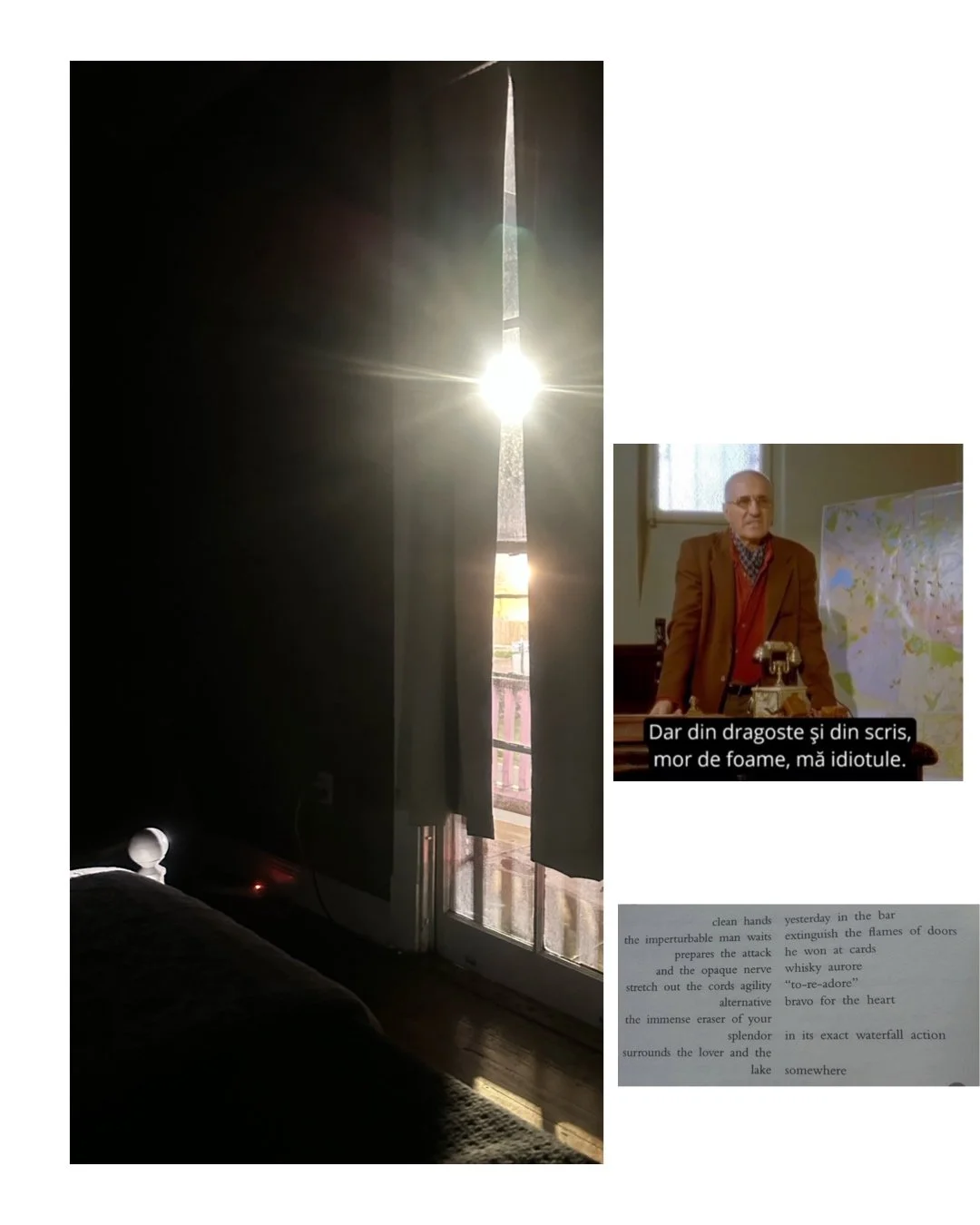(NARRATOR:) At this point mouth exits the circle.
— Tristan Tzara, The Gas Heart
Sometimes you bump into a photo taken by someone else and are stilled by the realization that it is an aubade. An O!-bawd. A shadow of a former self you cannot redeem without destroying —
I refuse to redeem her.
No ghost deserves to be shaped into a developmental arc that explains why the selves we abandoned led to the self we perform, a construction so fragile that it requires countless defensive structures to sustain, protect, and coddle.
Perhaps the idea of ‘self-esteem’ has always tasted a bit silly to me, an unsustainable Americanism that resembles our lifestyles in order to brush away the thought of what Ingeborg Bachmann and Joyelle McSweeney have poemed as our deathstyles.
Aesthetics of closure aside, a part of us dies but it does not disappear, does not vanish beneath the earth but remains and hovers in this insubstantial form that Jacques Derrida dragged into hauntology, and revisited in his elegies as well as his writings on friendship.
Though
I
sang
in
my
chains
like
the
sea
In a 1923 piece titled “Faites les Jeux” (published in Les feuilles libres, no. 32), Tristan Tzara said that he wrote to destroy the feeling that pushed him to write, a sensation that was too personal, too loud, due relentless at a time when he was actively pursuing his longtime dream of abandoning personality, and not existing as a person. This desire to be “apersonal” (as contrasted with the desire to be “a person”) also appears in the poem “Wire Dance March,” as well as early Dada, which hallows Tzara’s decision (ostensibly made by mother) to ensure that he would never fight in a war. Love sends its sons to Switzerland and then expresses surprise when they wind up in Germany. In early Dada, Tzara’s sense of himself as “a deserter” is never mentioned. Only later would the poet explore this particular shade of his absence.
From Tristan Tzara’s “Lost” as translated by Heather Green.
En fin, no fin. Every etcetera includes the look backward, and the looking-back, the creature trapped between her presents and the presence of a future anterior.
Or, to quote The Psychedelic Furs—


